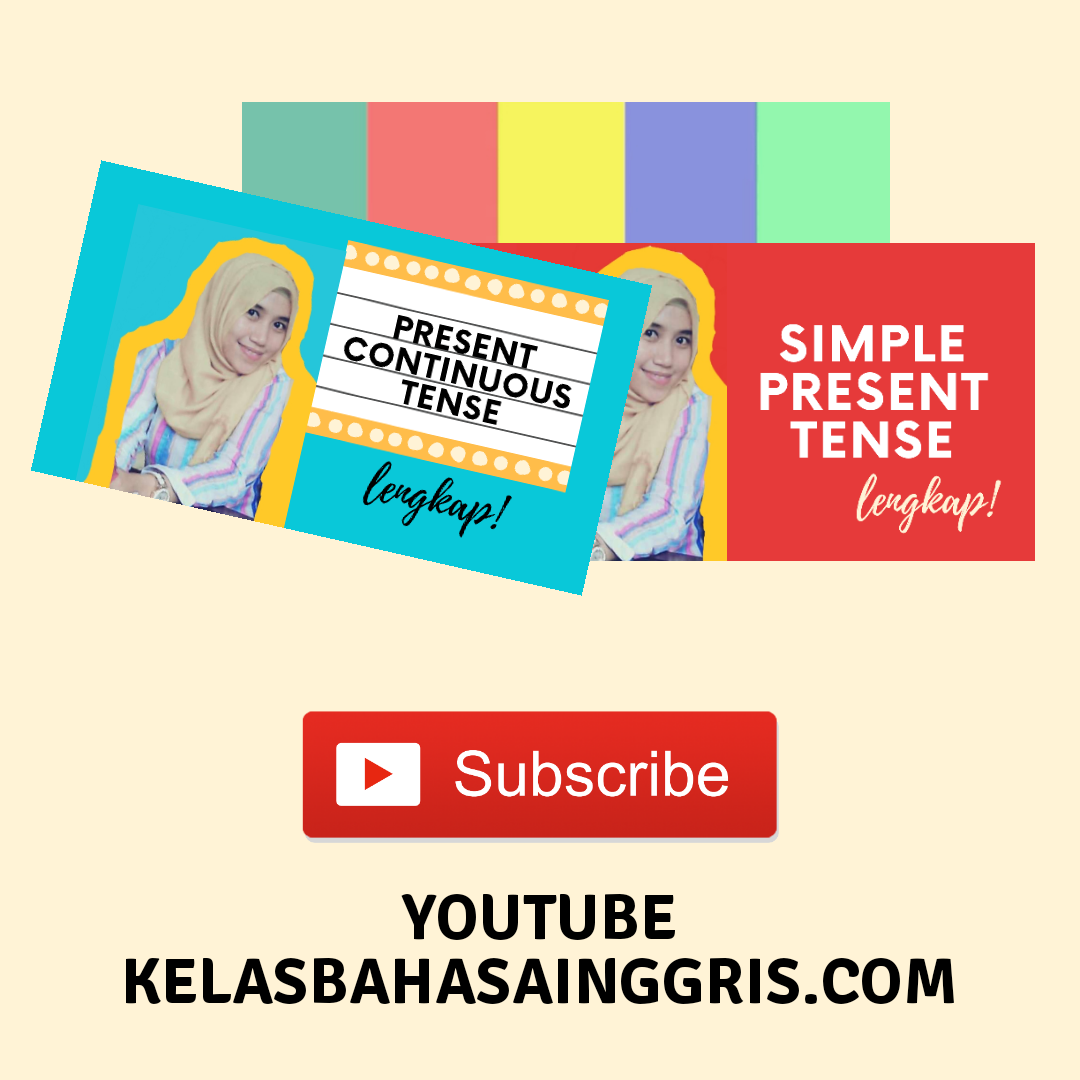You’re reading: Pengertian, Rumus, Contoh Kalimat Simple Future Tense
Pengertian Simple Future Tense
Simple future tense (atau future simple tense) adalah bentuk tense yang digunakan untuk mengungkapkan peristiwa atau kejadian yang terjadi di masa depan.
Ciri dari tense ini adalah menggunakan “will“, “shall” atau “be going to“.
Rumus Simple Future Tense
Berikut adalah rumus simple future tense untuk kalimat positif (+):
| Subject + will + verb 1 verb: to play | Subject + will + be + Adj/adv/noun Verb: to be |
|---|---|
| I will play. | I will be at home. |
| You will play. | You will be at home. |
| We will play. | We will be at home. |
| They will play. | They will be at home. |
| He will play. | He will be at home. |
| She will play. | She will be at home. |
| It will play. | It will be at home. |
Selain menggunakan “will”, kita juga bisa menggunakan “shall” dan “be going to”. Contoh:
- We shall play football.
- We are going to play football.
Catatan: “will”, bisa disingkat menjadi ‘ll:
- I will play menjadi I’ll play.
- You will be at home menjadi you’ll be at home.
Rumus simple future tense untuk kalimat negatif (-):
| Subject + will + NOT + verb 1 verb: to play | Subject + will + NOT + be + Adj/adv/noun Verb: to be |
|---|---|
| I will not play. | I will not be at home. |
| You will not play. | You will not be at home. |
| We will not play. | We will not be at home. |
| They will not play. | They will not be at home. |
| He will not play. | He will not be at home. |
| She will not play. | She will not be at home. |
| It will not play. | It will not be at home. |
Catatan: “will not” bisa disingkat menjadi “won’t”:
- She will not play menjadi she won’t play.
- We will not be at home menjadi we won’t be at home.
Sedangkan rumus simple future tense untuk kalimat tanya (?) adalah:
| Will + subject + verb 1? Verb: to play | Will + subject + be + adj/adv/noun? Verb: to be |
|---|---|
| Will I play? | Will I be at home? |
| Will you play? | Will you be at home? |
| Will we play? | Will we be at home? |
| Will they play? | Will they be at home? |
| Will he play? | Will he be at home? |
| Will she play? | Will she be at home? |
| Will it play? | Will it be at home? |
Kapan kita menggunakan simple future tense?
Kita menggunakan simple future tense:
Pertama, untuk mengungkapkan peristiwa atau kejadian yang akan terjadi di masa depan.
Contoh kalimat:
- They will go to Medan.
- She will be at coffee shop.
- We will finish our homework.
Kedua, untuk mengungkapkan janji (promise), permohonan (request), penolakan (refusal) dan penawaran (offer).
Contoh kalimat:
- I’ll pick you up this evening. (promise)
- I’ll bake a cake if you want. (offer)
- I won’t bring your books. (refusal)
- Will you buy me some food? (request)
Ketiga, untuk mengungkapkan prediksi. Contoh kalimat:
- It will be sunny tomorrow.
- I think this bag will cost more than 300 k.
Keempat, untuk mengungkapkan rencana (plan). Contoh kalimat:
- We will buy a new car.
- I am going to study next month.
Untuk rencana, biasanya kita menggunakan “will” dan “be going to”. Namun, ada perbedaan di antara keduanya. Mari kita lihat:
| Will | Be going to |
|---|---|
| Menyiratkan niat yang tidak direncanakan. Ada niat tetapi belum tentu dilakukan. Contoh: Someone is knocking on the door. I will open the door. (Ketika ada seseorang yang mengetuk pintu, langsung mengatakan saya akan membuka pintu.) | Niat yang direncanakan terlebih dahulu. Ada niat dan rencana. Contoh: We’ve bought the tickets. Tonight, we are going to watch a film. (Kita telah merencanakan untuk menonton film dan telah membeli tiket.) |
Kelima, kita menggunanakan simple future tense dalam conditional sentence tipe 1.
Contoh kalimat:
- If it rains, I will stay at home.
- I will come If you you invite me.
Baca juga: conditional sentence tipe 1
Okay class, bagaimana materinya? Mudah dimengerti, kan? Itulah penjelasan lengkap simple future tense.
Jangan sampai kamu lewatkan tenses lainnya:
- Simple present tense
- Present continuous tense
- Present perfect tense
- Simple past
- Past continuous tense
Mau tau kemampuan Bahasa Inggrismu??? Cek Bahasa Inggrismu DISINI
References:
- Thomson, A. J and A. V. Martinet. 1986. A Practical English Grammar fourth Edition. Oxford University Press: New York.
- Wishon, George E and Julia M. Burks. 1980. Let’s Write English Revised Edition. Litton Educational Publishing, Inc: New York.

Pengertian, Rumus, Contoh Kalimat Simple Future Tense

Hello my name is Efin Marifatika. I’m founder of kelasbahasainggris.com. Please feel free to contact me at efin.marifatika@gmail.com